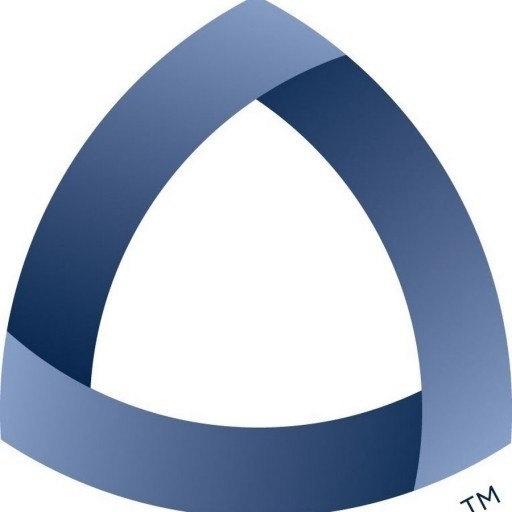Photos of university / #coloradoschoolofmines
The Robotics, Automation, and Design undergraduate program at Colorado School of Mines is designed to prepare students for cutting-edge careers in the rapidly evolving fields of robotics and automation technology. This interdisciplinary program emphasizes the integration of mechanical engineering, electrical engineering, computer science, and systems engineering to develop innovative solutions for real-world challenges. Students will gain a comprehensive understanding of robot design, control systems, automation processes, and intelligent systems, equipping them with the skills necessary to lead advancements in manufacturing, healthcare, aerospace, and other high-tech industries.
The curriculum combines foundational coursework in mathematics, physics, and engineering principles with specialized courses in robotics, embedded systems, sensors and actuators, machine vision, artificial intelligence, and machine learning. Students also participate in hands-on laboratories and design projects that foster practical skills and teamwork. Beyond technical expertise, the program emphasizes problem-solving, creativity, and ethical considerations in technology development. Students are encouraged to collaborate on multidisciplinary projects, often partnering with industry leaders and research laboratories to gain real-world experience and stay abreast of the latest technological developments.
The program prepares graduates for diverse career paths such as robotics engineer, automation system designer, control systems engineer, research scientist, and quality assurance specialist. Many alumni find employment in innovative companies and research institutions, contributing to advancements in autonomous vehicles, industrial automation, space exploration, and medical devices. The Colorado School of Mines also offers opportunities for undergraduate research, internships, and cooperative education to enhance experiential learning. Graduates are equipped not only with technical competence but also with leadership, communication, and project management skills essential for success in the evolving landscape of robotics and automation technology.
- Robotics (hardware and software)
- Intelligence Machines
- Advance automation and robotics in key industries
- Design of robotic systems for hazardous situations/environments
- Develop computational technologies that embed intelligence for fault detection and condition-based maintenance / prognostics
- Couple advanced computational technologies with engineering design methodologies
- Robots and Intelligent Machines
- Mining Robotics
- Intelligent Sensing Systems
- Machine Health Monitoring
- Computational Design Methodologies
- Intelligent Robotics, Automation & Manufacturing
- Nonlinear Design Optimization Methods
- Deterministic & Probabilistic Metamodeling
- Condition-Based Maintenance
- A baccalaureate degree in engineering, computer science, a physical science, or mathematics with a minimum grade-point average of 3.0 or better on a 4.0 scale;
- Graduate Record Examination (Quantitative Reasoning)section score of 160 or higher. Applicants from an engineering program at CSM are not required to submit GRE scores;
- TOEFL score of 79 or higher or (550 or higher paper-based or 213 computer-based) for applicants whose native language is not English.
The Robotics, Automation, and Design program at Colorado School of Mines offers a comprehensive financing structure to support students throughout their academic journey. In-state students typically benefit from lower tuition rates, which are aligned with the university’s commitment to accessible engineering education. Out-of-state students pay higher tuition fees, but numerous financial aid options are available to offset these costs. The university provides a variety of scholarships, including merit-based scholarships awarded based on academic achievement, leadership, and potential contributions to the program. Additionally, need-based financial aid is accessible through federal and state grant programs, which applicants can apply for by submitting the Free Application for Federal Student Aid (FAFSA).
Students enrolled in the program are encouraged to seek departmental scholarships specific to engineering and robotics disciplines, which are often competitive and merit-based. Besides scholarships, the university offers work-study opportunities and part-time employment on campus to supplement students' income. Graduate students in the program may qualify for research assistantships or teaching assistantships, which provide stipends and often include tuition waivers, making advanced study more financially feasible.
Colorado School of Mines also participates in federal loan programs that allow students to borrow funds for educational expenses, which must be repaid after graduation. The university’s financial aid office provides personalized guidance to help students understand the eligibility requirements and application processes for these various financial resources. Furthermore, many students engage in internships and cooperative education programs, which not only enhance practical experience but can also provide stipends or hourly pay, aiding in financing their studies. The structure of financing studies at Mines aims to minimize financial barriers and support sustainable academic and professional development in Robotics, Automation, and Design.
The Bachelor of Science in Robotics, Automation, and Design at the Colorado School of Mines offers students a comprehensive education in the interdisciplinary fields of robotics, automation systems, and design engineering. The program is designed to prepare students for careers in industries such as manufacturing, aerospace, automotive, and robotics development by providing a strong foundation in mechanical design, electrical systems, software engineering, and control systems. Students will learn through a combination of coursework, laboratory experiences, and hands-on projects that emphasize innovation and practical problem-solving skills. The curriculum includes core courses in mechanical engineering principles, electrical circuits, computer programming, embedded systems, control theory, and systems integration.
Specialized courses focus on robotics hardware and software, sensor integration, automation control, and advanced design methods. The program also encourages collaboration and teamwork through project-based learning, allowing students to work in multidisciplinary teams to develop real-world solutions. Faculty members are engaged in cutting-edge research, providing students with opportunities to participate in innovative projects related to autonomous vehicles, robotic manufacturing, and intelligent systems. The program is intended to equip graduates with both technical expertise and the systemic thinking necessary to develop and manage complex automated systems across various sectors.
Students can participate in internships, co-op programs, and industry partnerships to gain valuable practical experience and enhance their career prospects. The curriculum emphasizes sustainability, ethical considerations, and the societal impacts of automation and robotics. Upon graduation, students are well-prepared for employment or advanced study in robotics and automation industries, or for entrepreneurial ventures in technology development. The program integrates the latest industry standards and emerging technologies, ensuring that graduates are competitive in a rapidly evolving technological landscape.









